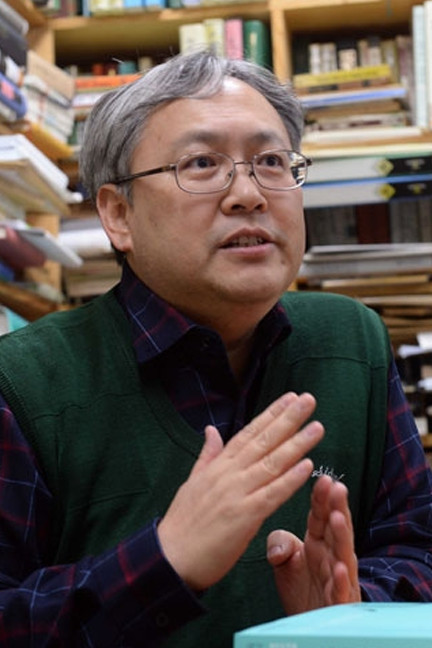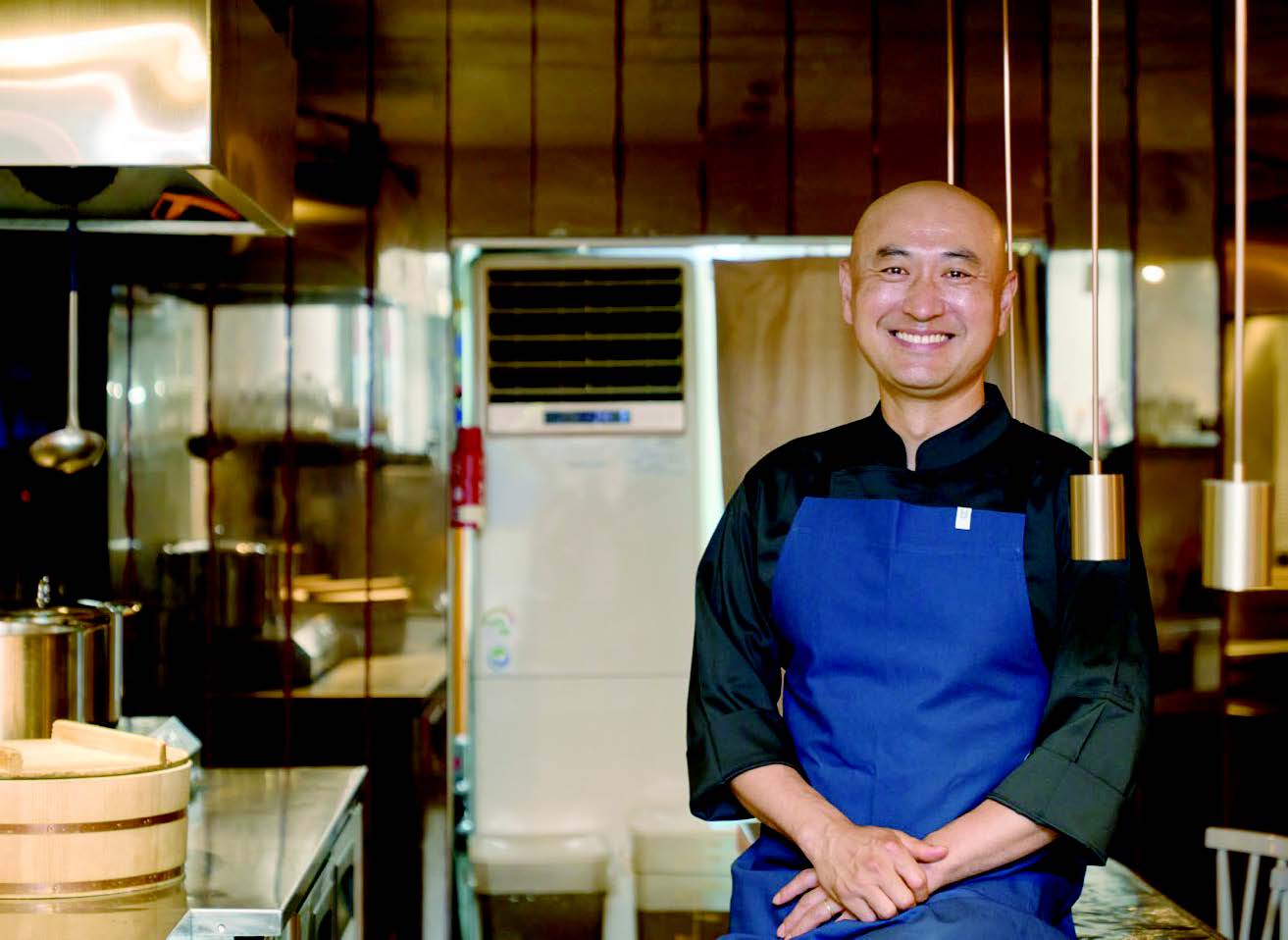[People] Bringing Korean Literature to the World: The Impact of Lee Joseph
Currently, K-culture is expanding its influence globally with various aspects, including movies, food, and K-pop, making significant strides. Among these, K-literature has also emerged as a key player. Numerous works such as Han Kang’s The Vegetarian, Shin Kyung-sook’s Please Look After Mother, and Yun Ko-eun’s The Disaster Tourist, have gained worldwide acclaim.
This global spotlight on K-literature is largely due to the efforts of those who work to introduce these books to international audiences. Lee Joseph, who earned a master’s degree in the Dept. of English Language and Literature at Kyung Hee University and is currently pursuing a Ph.D. in the Dept. of Korean Language and Literature, plays a crucial role as a literary agent in this process. As of 2018, over 90% of Korean literary works exported to English-speaking countries have passed through his hands. He is recognized as a global ambassador of K-literature for his significant contributions to exporting Korean books.
Pioneering the Global Reach of Korean Literature
Driven by his passion for literature, Lee aspired to introduce Korean literature to the world. After completing his master’s degree, he decided to enter the workforce to finance his studies before pursuing a Ph.D. This led him to join Imprima Korea, a copyright agency, in 1995, where he began his journey as a literary agent.
At that time, however, awareness of Korean books and authors was relatively low in the global market. Lee recalls, “I started trying to export Korean literature in 1995, but the first successful export was in 2005, with Kim Young-ha’s I Have the Right to Destroy Myself.” He noted how challenging it was to export Korean works abroad, with only about one book per year being successfully exported from 2005 to 2007.
Despite these challenges, Lee’s relentless efforts led to the successful export of numerous Korean authors’ works. In 2011, he founded KL Management, a copyright agency, to further explore overseas markets. Lee has since exported over 1,000 Korean books, including notable works such as Han Kang’s The Vegetarian, Shin Kyung-sook’s Please Look After Mother, and Jeong You-jeong’s Seven Years of Darkness.
He played a key role in the success of The Vegetarian, which became the first Korean novel to win the prestigious Booker Prize, and Sohn Wonpyung’s Almond, which won the 2020 Japanese Booksellers’ Award in the translated fiction category. Through his efforts, Lee has enabled many distinguished Korean authors to gain international recognition, continuing to play a vital role in bringing Korean literature to the world.
The Strategic Process Behind Lee’s Literary Exports
Lee’s success in bringing Korean literature to the global stage is rooted in his careful selection of works and a systematic export process. He explained that his criteria for selecting works to export include their potential to be enjoyed by readers in various countries and their global competitiveness. Lee emphasized that this competitiveness stems from a combination of uniqueness and universality. He selects works that clearly showcase the individuality and originality of the author while also possessing universal qualities that allow readers worldwide to connect with the story, even if they are unfamiliar with Korean culture.
Once selected, these works are introduced abroad through a structured export process. Lee first determines the target linguistic market and then prepares English promotional materials. These materials, including a synopsis and a sample translation, are sent to overseas co-agents who advertise the work. If co-agents evaluate them positively, they present it to local publishers.
If a publisher decides to import the work, the literary agent negotiates the terms between the writer and the publisher. Once both parties agree, a contract is drafted, reviewed, and signed, with payment made in advance. The local publisher then hires a translator. After translation, the work goes through editing by the publisher’s editorial department. Through this entire process, a book is successfully exported. Lee noted that while this process can take as little as two years, delays can significantly extend the process. For instance, it took seven years to export The Vegetarian.
The Changing Landscape of Korean Literature in Global Markets
Despite the challenges, the current market for the translation and export of Korean literature has significantly improved compared to the past. Lee remarked, “In the past, only about one book was exported per year, but now, multiple works by a single author can be contracted at once, and there are even instances where overseas agencies contact us first, inquiring about works which we have not yet introduced. Clearly, the situation has changed dramatically.”
As Korean literature’s reputation has grown abroad, the chances of successful exports have increased as well. Lee explained that this has opened opportunities to export various genres beyond literature. However, he candidly admitted that being a literary agent is not a highly lucrative profession. “Of course, this might change in the future, but for now, the financial output does not match the effort I put in. The high barrier to entry is a reality,” he added.
Nevertheless, Lee expressed his pride in his profession, stating, “Exporting Korean literature abroad is a highly meaningful and rewarding endeavor.” He also offered advice to students aspiring to become rights agents, saying, “The role of a rights agent encompasses various categories beyond literature. However, literature is the foundation of all these categories, so even if you do not become a literary agent, cultivating a literary background will be immensely beneficial.”
Additionally, Lee emphasized the importance of gaining knowledge in various fields, noting that his work involves interacting with diverse people. He recommended accumulating a wide range of experiences, as this will facilitate communication in a more comfortable atmosphere.
For a book created in one cultural context to be recognized and appreciated in another, it is not enough to simply craft a well-written work. It requires meticulous translation that can evoke empathy from readers of different cultures and the support of literary agents who can promote the work’s excellence to publishers and media.
Lee has played a crucial role in helping Korean authors transform into global figures. His tireless efforts have enabled many Korean authors to step onto the global stage, providing a crucial opportunity for Korean literature to gain international appreciation.
Building on the heightened awareness of Korean literature, Lee is now attempting to export a wider range of books that embody the essence of Korean culture, such as poetry and non-fiction, which capture the art and philosophy of Korea. Furthermore, he is interested in exporting the rights to Korean literature adaptations for musicals, operas, and plays to be performed overseas.
Looking ahead, Lee is expected to continue his work of exporting more Korean authors’ works, providing them with opportunities for global recognition, and expanding the universal reach of Korean culture. His future endeavors are eagerly anticipated.
There are no registered comments.
- 1
- 2
- 3
- 4
- 5
I agree to the collection of personal information. [view]






